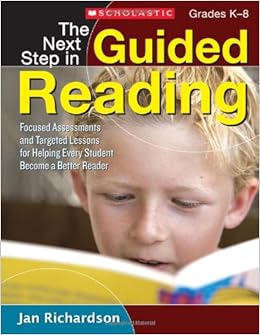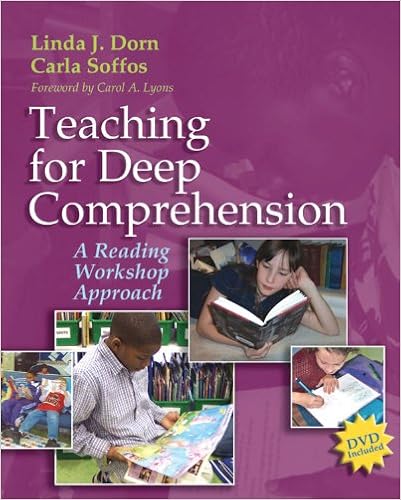Two books that have helped me tremendously in the area of guided reading and literature discussion are the following:


I have seen all of the author's speak as well, and have crafted my small group instruction based on their philosophies.
One big misconception that needed to get out in the open was the idea of using round robin reading. When students are involved in this type of reading, only one student is doing the work-the one reading aloud. We have such precious little time to work in small groups with students that we have to have them working the whole time. Students all need to be reading the text silently to themselves as the teacher listens in to each one individually at whichever point they are in the text. Another reason this is important is the students should be hearing only the very best reader in the room read aloud...and that person is the teacher.
Transitional Guided Reading
Levels J-P
Instructional Needs: self-monitoring, decoding, fluency,
vocabulary and retell
Framework for Guided Reading
·
Selecting the Text
·
Introducing the Text
·
Reading the Text
·
Discussing and Revisiting the Text
·
Teaching for Processing Strategies
·
Extending the Meaning of the Text (optional)
·
Word Work (optional)
Fluent Guided Reading
Read
Fluently above a level N, with no decoding, fluency or retell issues.
Select a
focus strategy.
Materials:
any relatively short text can be used-poetry, short stories, newspaper
articles, magazine articles, short chapter books and informational books.
(it is recommended not to use a novel for
guided reading-these are better for literature discussion groups or
self-selected reading)
From our discussions we discovered the following:
3rd grade: 2-3 guided reading groups
4th grade: 2 guided reading groups
5th grade: 1 guided reading group
The majority of students in 5th grade were able to read fluently and benefit more from rich discussions with their peers around similar texts as occurs during literature discussion groups.
Literature Discussion Groups
Small-group
conversations about books.
7 predictable, yet flexible
components:
- Introduction and Selection of book
- Silent Reading
- Teacher Conference
- Group Discussion w/teacher present
- Peer Discussion, extension of the group with only students
- Text Mapping and Focus groups
- Literature Extensions, variety of activities
This week I am modeling how to introduce literature discussion groups with our 4th grade team. Our principal graciously offered to instruct the students who are not quite ready for this, so that our whole team can watch the teaching. I began yesterday and look forward to model the future lessons all this week.
No comments:
Post a Comment